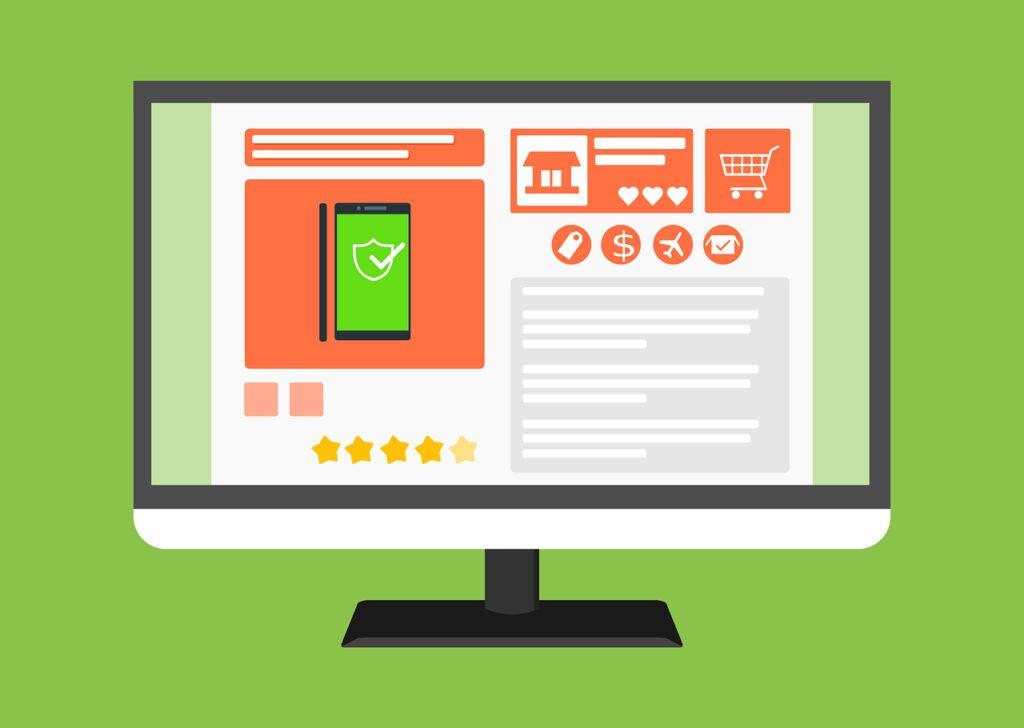Choosing the best platform for your eCommerce website can be a headache if you consider the hundreds of content management systems we have now. Individuals planning to build online shopping platforms are frequently confused about which one they should settle for. Hence, we need to create this comprehensive article on the best platform to build an eCommerce website in 2022. But firstly;
Why Online Shopping Website? A Brief History of eCommerce
Shopping online is the new go-to for most consumers today. Of course, online shopping has been in existence for quite a long time (since 1982), which predates even the birth of the World Wide Web. However, the first secure online transaction was launched in 1994 by NetMarket and followed immediately by Amazon and eBay in 1995. Ever since, consumers and business owners alike have been maximizing this excellent opportunity to buy and sell online.
The pandemic further contributed to the growth of online businesses, with almost 80% of the US population opting to shop online rather than in person. However, with an expected user toll of around 5billion by 2026, as a business plan to venture into an online business, you must leverage the best platforms for building e-commerce websites.
With a good e-commerce platform, you can display your products, handle transactions, shipping, and other general store management activities without having a single physical store. The advent of e-commerce websites is a welcome development for small business owners because it allows them to compete with the big sellers by leveraging existing and reliable eCommerce platforms.
There are different e-commerce platforms for various online shop peculiarities.
In this article, we will be exploring six e-commerce platforms that have proven to be the best platform for building an eCommerce store.
Please note that this doesn’t mean another platform not listed in this article isn’t suitable or adequate. We based this list on our customers’ feedback, popularity, and Expertrec close attention to each platform’s effectiveness. So lets us dive in.
The 6 Best Platforms for E-commerce website by Expertrec
1. Shopify
When it comes to the best platform for building an online shopping website, Shopify is definitely the number 1 website that comes to mind, especially for small businesses. It is designed excellently for the fast opening and running of an online store. It offers both website and content management services. It also provides web hosting and maintenance. Some of its features include:
- Multi-channel integrations.
- Extensive design template collection.
- Multiple integrated payment gateways.
- Inventory management.
- Search engine optimization.
2. Woo Commerce
Woo Commerce is an e-commerce platform that is an extension of WordPress. It is known for its flexibility and familiarity as a plugin for WordPress. Some of its best features include:
- Free basic version.
- Simple user interface for beginners.
- Customization friendly.
- Shopping cart.
- Community support.
3. Big Commerce
Big Commerce is a fully hosted platform that is great for both website building and content management. If your business attracts high volume transactions with large product inventory, then Big Commerce, as the name sound, is your best shot. Some of the fantastic features you can enjoy when using Big Commerce include:
- Search engine optimization (SEO)
- Simple GUI
- Dropshipping
- Support integration of other CMS
- Multiple themes and design templates
- Online support.
4. Wix
Wix is a fully hosted e-commerce platform known for its simple website building. It offers beginner-friendly features for small online shop owners with brand image building. Its feature includes:
- Marketing and SEO.
- Store management.
- Multiple sales channels.
- Store analytics.
5. Ecwid
Short for “e-commerce widgets,” Ecwid is a plugin best suited for entrepreneurs that already have a website. It integrates with the existing platforms you already use to promote your business by creating an online shop for it. Ecwid offers necessary online shop tools built into the system instead of some other platforms that need several extensions and add-ons. Some of its features include:
- Unlimited product options.
- User-friendly GUI.
- Multiple selling channels.
- Mobile app for your store.
6. Magneto
Magneto is a non-hosted e-commerce platform that offers complete content management packages. It gives sellers the privilege to choose different hosting sites instead of being tied to just one. As a result, it facilitates increased revenues and more growth opportunities. Its feature includes:
- Seamless consumer experience.
- Cross-selling.
- Third-party integration.
- Seo friendly.
- Online community.
Important Factors to Check When Choosing a CMS Platform for an Online Shopping Website?
Most e-commerce platforms offer a wide range of services for small businesses. As a small business owner looking to open an online store, choosing the platform most suitable feature for your business is imperative.
Below is a list of some of the essential functionalities you should consider when choosing a website for your online shopping website.
1. No Restrictions
The platform should enable you to sell what you want, how you want, and where you want. There should be an option for products and functional checkout or shopping cart options. The goal is to save as much money as possible while automating your eCommerce business.
2. Automate Transactions
The platform should be able to calculate shipping costs (including international), taxes, store analytics, track traffic, and generally make your paperwork easier. As a small business owner, you want to keep your store management as simple as possible. Because more sophisticated processes, like hiring an analyst, incur more cost and take the small out of the small business.
3. Design Templates
The platform should have an extensive collection of design templates and easy-to-use extensions like the Expertrec Smart Search Engine. You don’t need a programmer to help you customize your design templates when you can easily incorporate a simple, unique third-party feature.
4. Search Engine Optimized
The platform should be SEO-friendly. This is among the top features an eCommerce platform should have, especially for growing businesses. You want your shop to be seen, and you want more SEO options to generate traffic to your store continually. Most platforms do not offer this feature. This is where functionality over cost takes precedence. You don’t want to be penny-wise pound foolish.
5. Great UI/UX
The platform should have a user-friendly interface. You want your consumers to have a seamless experience shopping from your store. Therefore, you want to give them simple graphic designs pleasing to the eyes while engaging them during their time in your shop.
6. Multiple Payment Gateways
The platform should have different payment gateways. This might be too much for a small online store, but a little variety will not harm. This feature would also give your business a competitive edge internationally because you want your store to attract shoppers from different countries.
Pricings and Expenses Attached to Using Theses 6 Ecommerce Platforms
Ecommerce pricings are a little complicated as it involves different costs and fees, ranging from hosting down to payment gateways. Listed below are some expenses incurred for an e-commerce website/online shop.
1. Payment processing fees
Payment processing fees are the charges applied to you from the payment gateways you use. The costs depend on the payment gateways you use for your checkout. The currency, selling regions, and the number of payment gateways also influence the price. E.g., the PayPal payment processing fee is 2.9% + $0.30 depending on the transaction.
2. Ecommerce hosting
Aside from platforms like Big Commerce and Shopify that offer web hosting, you have to pay a third party to host and manage your website. The prices for hosting depend on the services rendered and how big the business is. Self-hosted e-commerce hosting charges $2.80 – $241per month, while SaaS e-commerce hosting charges $29 – $299 per month.
3. Add-ons and extensions
These are payments for plugins, extensions, add-ons, and designs. Irrespective of how good a platform might be, it will not contain everything you need for your online shop.
4. Transaction fees
These are fees for each transaction carried out on your online store. They are percentage fees added to the payment processing fees.
5. Monthly/annual fees
There are different plans/subscriptions offered monthly or annually by these platforms. A basic plan goes for $30 monthly for most of the platforms listed. Some platforms also offer discounts for annual subscriptions.
6. Ongoing E-commerce costs
These are costs related to the functionalities of an e-commerce website. They include content management costs, email marketing, inventory management, product marketing, etc.
Conclusion
With the ever-growing number of consumers opting for online shopping, e-commerce businesses are now a gold mine entrepreneurs need to tap into. While Shopify ticks all the necessary boxes for a small online store, the other five platforms mentioned here also have good ratings for small online businesses. I hope this article has helped you as an entrepreneur to leverage the best e-commerce platforms available in the market today. Cheers!






